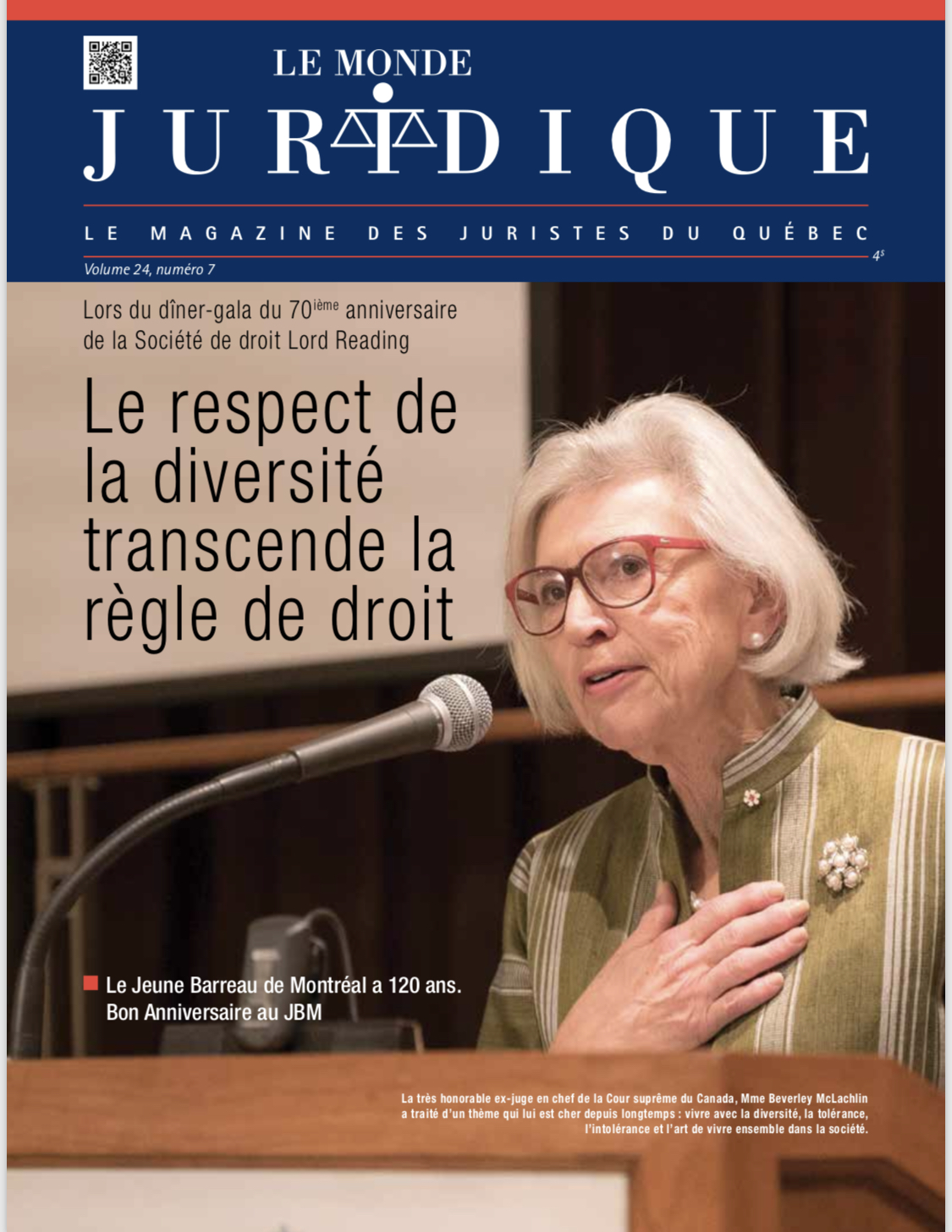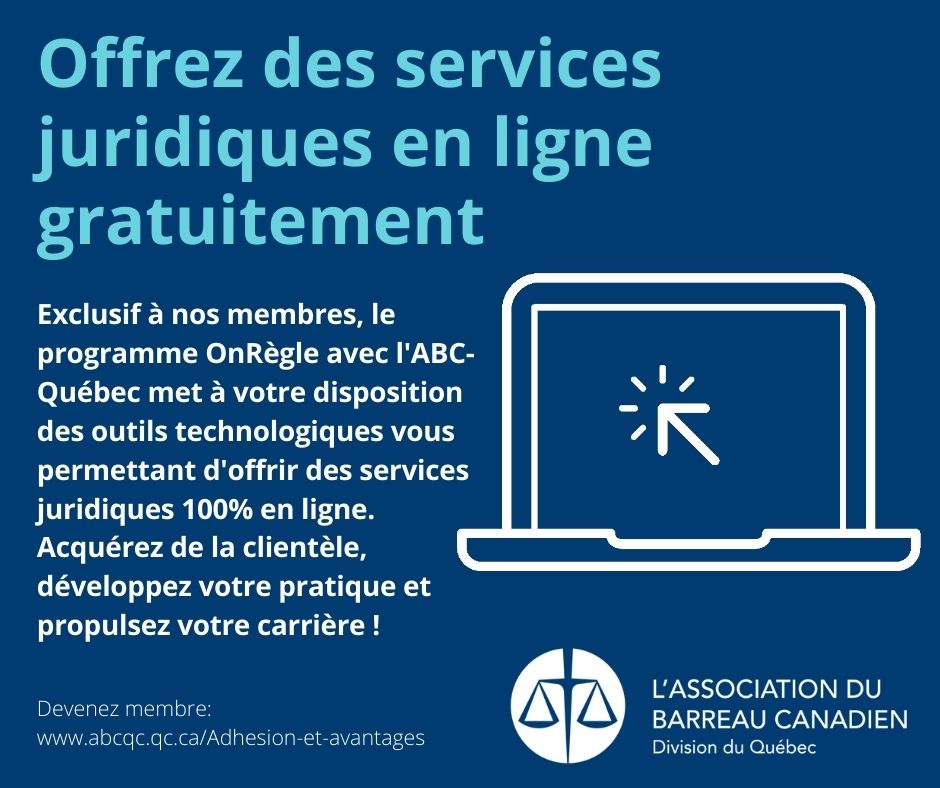The American College of Trial Lawyers Creates the Beverley McLachlin Access to Justice Award to Honor The Right Hon. Beverley McLachlin, P.C.

The American College of Trial Lawyers (the College) has announced the creation of the Beverley McLachlin Access to Justice Award to The Right Honourable Beverley McLachlin, P.C. The award, named in her honor, is to be presented to a judge or a member of the bar in the United States or Canada, whether or not a Fellow of the College, who has played an exceptional role in creating and promoting access to justice. The award will recognize innovative measures or extraordinary personal commitment and professional dedication which have enhanced access to justice in the United States or Canada.
The award, created upon Chief Justice McLachlin’s retiring from the Supreme Court of Canada in 2017, serves to deliver a powerful message on behalf of the College, both in relation to the role of women in the legal profession and in relation to the importance of access to justice, which ties to the core mission of the College.
College President Jeffrey S. Leon, LSM said, “During her tenure, former Chief Justice McLachlin made improvement of access to justice central to her quest to advance the rule of law and advance the administration of justice in Canada. We are so pleased that she has allowed us to create the award in her honor. It is important in the United States and Canada to recognize and celebrate those who have made singular pro bono contributions to access to justice. Too often such important work fails to get the recognition it deserves.”
Past President of the College David W. Scott, O.C., Q.C. said in his introduction of Chief Justice McLachlin: “Chief Justice McLachlin was the first woman Chief Justice and the longest serving occupant of such high office in the history of the court. No one would question her enormous success on the court. Indeed, Canadians would have no hesitation in saying that she was the single most important jurist in its history. The love and respect with the bar and the community at large have for Beverley McLachlin goes without saying and is a principal feature in her legacy. Chief Justice McLachlin enjoyed all the qualities necessary for a superb judge and more as a person. She was thoroughly impartial, independent, a delight to appear before, extraordinarily democratic in her management of the court, and notoriously collegial with her colleagues.
“Throughout her career, the Chief Justice has displayed an inspiring interest and commitment to the development of access to justice initiatives. Her most important achievement in access activities is her establishment, while sitting as a member of the Court, of the Action Committee on Access to Justice in Civil and Family Matters. The Committee was established with representation from the Bar, the government, the judiciary, and an impressive array of officials involved in the administration of justice,” said Scott.
In her acceptance remarks, Chief Justice McLachlin said, “Access to justice is essential to the effectiveprotection of fundamental rights and hints to the rule of law. That is why I am so deeply touched and deeply honored by the creation of this award for access, for people who labor and achieve much in enhancing access to justice.
“People, I believe, are hardwired for justice. No matter how humble, they feel they should be treated fairly by governments, by institutions, by other fellow citizens. When the state denies that right to get vindication, we lose something. We lose something very important to what it is to be a citizen and what it is to be joined together as a nation. Access to justice grew from there in my imagination, in my heart. I, sometimes to the tedium and boredom of others, talk about it rather too much, perhaps, but I do believe it remains essential. Many see justice as a fringe, access to justice as something you can get if you can afford it, if you are willing to pay for it, if you are willing to put up with delays, but that I, believe, is not how it should be. Justice is not a frill. It is not a luxury. It is a fundamental right of every woman, man, and child.”
Chief Justice McLachlin was called to the Alberta Bar in 1969 and to the British Columbia Bar in 1971. She practiced law in Alberta and British Columbia and also taught for seven years in the Faculty of Law at the University of British Columbia as a tenured Associate Professor. Though recently retired in December of 2017, her judicial career began in April 1981 when she was appointed to the Vancouver County Court. Four months later, she was appointed to the Supreme Court of British Columbia before being elevated to the British Columbia Court of Appeal and then appointed Chief Justice of the Supreme Court of British Columbia in September 1988. Seven months later, she was sworn in as a Justice of the Supreme Court of Canada. In January of 2000, her honour was appointed Chief Justice of Canada, and has the distinct honor to be the first woman in Canada to hold this position, as well as being Canada’s longest serving Chief Justice. In addition to her judicial duties at the Supreme Court, Chief Justice McLachlin has chaired the Canadian Judicial Council, the Advisory Council of the Order of Canada, and the Board of Governors of the National Judicial Institute. Her reputation now has an international luster with her appointment earlier this year as a member of Hong Kong’s Court of Final Appeal. She has joined Arbitration Place in Ottawa and Toronto and will work as an arbitrator and mediator in Canada and internationally. She is also the author of numerous articles and publications.
About The American College of Trial Lawyers
The American College of Trial Lawyers is composed of preeminent members of the Trial Bar from the United States and Canada and is recognized as the leading trial lawyers organization in both countries. The College is dedicated to maintaining and seeking to improve the standards of trial practice, professionalism, ethics, and the administration of justice. The College strongly supports the independence of the judiciary and respect for the courts in the United States and Canada; that independence is fundamental to our democratic societies. For more information about the College, visit its website at www.actl.com.












